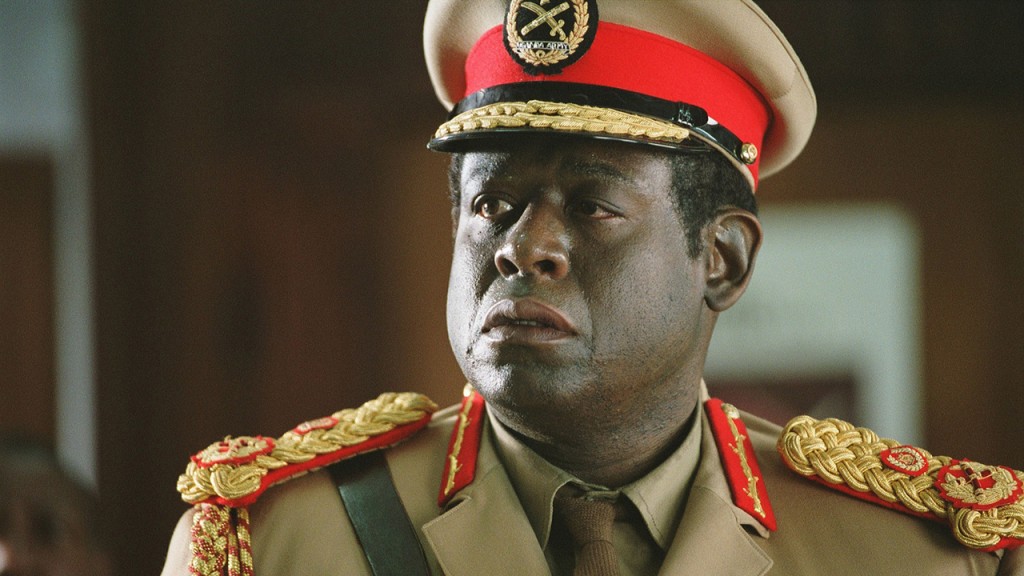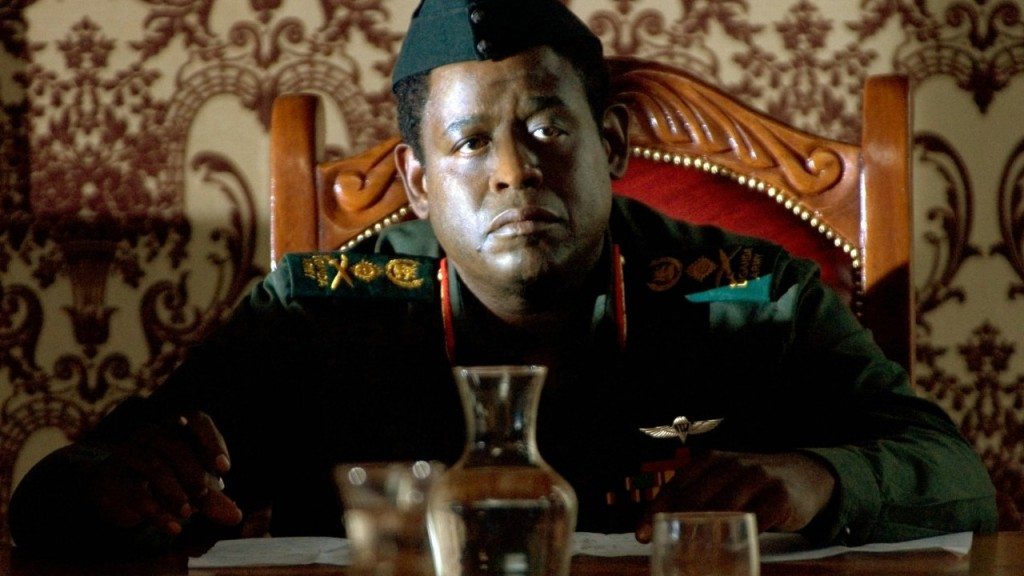Directed by Kevin Macdonald, ‘The Last King of Scotland’ follows Dr. Nicholas Garrigan, an adventurous young doctor who sets out to Uganda soon after his graduation in order to help the populace. He soon becomes familiar with the charismatic General Idi Amin, who has recently become President of Uganda in a military coup. With the charming James McAvoy as the young Scottish doctor and the brilliant Forest Whitaker as General Idi Amin, the film also features Kerry Washington, Simon McBurney, and Gillian Anderson in pivotal roles.
The 2006 film is an intriguing tale of the bond which is formed between two men of vastly different backgrounds and positions in life. Told almost entirely from the point of view of Garrigan, the audience goes through the same emotions as he does as each facet of General Amin is slowly revealed. The compelling and raw acting by McAvoy and Whitaker reels in the viewers, and one can’t help but be curious about the origin of such fascinating characters. Here’s everything you need to know about ‘The Last King of Scotland’.
The Last King of Scotland: Loosely Based on Historical Figures
Yes, ‘The Last King of Scotland’ is loosely based on a true story. Written by Peter Morgan and Jeremy Brock, it is based on a novel of the same name by journalist Giles Foden. The novel itself presents the dictatorship of former Ugandan President Idi Amin in a fictionalized setting and thus cannot be deemed an entirely accurate historical account. While Idi Amin is a real and very well-documented person, both the historical drama film and the novel it is based on have taken more than a few creative liberties in the retelling of the Ugandan dictator’s life.

The first and foremost of the changes is the fact that there was no Dr. Nicholas Garrigan in real life. “Nicholas Garrigan is based on three people that actually existed and had very close relationships with Amin…one of them was a Scottish doctor who’s a little bit older than my character,” said James McAvoy, speaking on the origins of his character in an interview with STV Entertainment.
The film does an excellent job of depicting through the eyes of Garrigan how a people who have already been betrayed and beaten by their country’s leader would be eager and welcoming to any form of change; how those who are in power or close to power delude themselves into believing that everything is fine and sometimes only perceive reality how they wish for it to be.

“He [Garrigan] does fall in with someone [Amin] incredibly bad but who’s incredibly charming and who empowers my character. So when you’ve got that kind of empowerment and it makes my character feel special. When you’ve got that kind of empowerment and attention paid to someone, with that youthful vanity and ego, and selfishness and self-serving nature; I think, I think it’s quite really understandable that you would succumb to, as you say, the dark side,” McAvoy said about his character’s nature and motivations, and why he believes Garrigan stuck around with Amin in the same interview.
Though Dr. Garrigan and his relationship with General Idi Amin is completely fictional, the film does not deviate from the atrocities committed by Amin during the time period in which it is set. As per reports, nearly 300k people died during his reign. These included members of the opposition and supporters of the former regime of President Obote, among others. The economy of Uganda also collapsed due to President Amin’s policies regarding foreign nationals and business owners.
‘The Last King of Scotland’ informs the viewers of all these reported atrocities and actions taken by Amin from the sidelines; however, Dr. Garrigan learns about these things as the story naturally progresses. Forest Whitaker as the Ugandan dictator, is incredibly convincing. So convincing, in fact, that he received an Academy Award in the Best Actor category for his portrayal of Amin. “I only had a limited image of a crazed man in an army uniform…I really had no understanding,” Forest Whitaker said about his impressions of Idi Amin while playing the character in the film.

The actor added, “I didn’t understand the culture of Uganda or any of the things around him. So I, as I really started to get into it after, then I came to understand ‘cause my job was to kind of go underneath it and try to figure out the motivations and the way it really was. And I slowly start to understand this, like, soldier who ultimately was trying to help his country but, like, fell into sort of a madness of power, of like feeling afraid and betrayed.”
The themes presented in the film are also quite jarring for the audience, but ones which they have to accept and can’t look away from. Themes of slavery, racism, colonialism, and imperialism are all subjects that might make people uncomfortable, but they’re still as relevant today as they were in the past. Though it takes a departure from reality at times, ‘The Last King of Scotland’ manages to present the terror and paranoia during Amin’s reign quite well. Though the impact General Amin had on Uganda was vast, his presidency is only but a small chapter in the making of the history of the African nation.
Read More: Best Period Dramas of All Time


You must be logged in to post a comment.